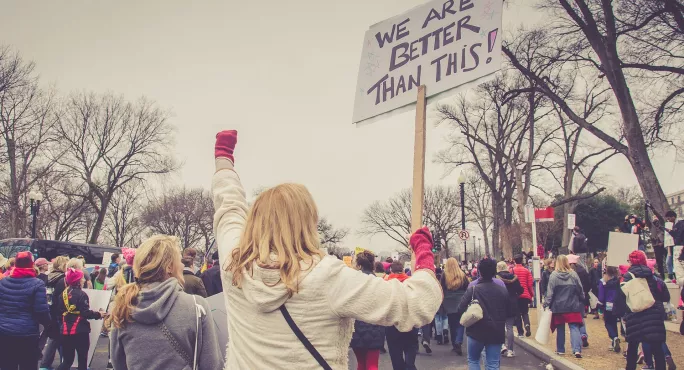Many young women say there is dearth of education on politics and that they do not get enough opportunities to discuss social and political issues at school, according to new research.
The third Status of Young Women in Scotland report, which is due to be published next week, reveals an appetite for learning about politics that many girls feel is not being met at school.
The study, commissioned by YWCA Scotland - The Young Women’s Movement and carried out by Edinburgh-based research agency The Lines Between, focuses this year on young women’s political engagement, activism and representation in Scotland, to mark 100 years of some women getting the vote in the UK and also movements such as #MeToo and #TimesUp.
Previous Status of Young Women in Scotland report: Porn should be discussed in sex ed
#MeToo: Has it had an impact on high school kids?
One academic’s view: ‘Why teachers should be open about their politics’
The report states that participants “highlighted the persistent limitations and barriers they are facing, such as a sense of under-representation a lack of opportunities, and the feeling that the current political system is not designed to encourage and facilitate young women’s involvement”.
Many of their comments related to education: they “talked of the lack of education on politics and the subsequent lack of opportunities to get involved in meaningful discussions about social and political issues at school”.
One participant said: “We didn’t do any politics at all at school, we didn’t even talk about politics at school - that needs to change.” Another said: “I think there needs to be more in school for people who aren’t particularly interested in social science to still be able to feel they know enough about politics to take part.”
There was also a view that it made no sense to ignore politics in schools, especially when people can vote in elections from the age of 16 in Scotland.
One participant said: “I only became more aware of politics when I started uni. They talk about social issues all the time in class…poverty and mental health issues. I’ve got more awareness now than I ever did - I wish I’d known about it when I was younger.”
Another said: “Obviously, in some elections you can vote at 16, and people are like, ‘You need to vote to get your voice heard’, but no one actually knows what you’re voting for because no one understands - we don’t learn that in school. It’s kind of boring, but we should at least have a basis of knowledge about how the politics in our country works so when it comes to voting we can make our own decisions - educated decisions.”
Statistics published by the Scottish Qualifications Authority last month showed that politics is one of the fastest-growing subjects at Higher level.
Young women also commented in next week’s report, however, on a wide range of ways they are involved in politics and the various opportunities they have had, including at school.
One said: “When I was in high school, we did a lot of work in the global community, like a partnership with a school in South Africa.”
The study consisted of a series of focus groups and interviews with women aged 16-30 across Scotland, as well as an online survey. In total, nearly 500 young women took part in the research.
In a foreword to the YWCA Scotland report, which will be published on 16 May, first minister Nicola Sturgeon says: “I want to see more women in politics, and particularly a more diverse range of women - from ethnic minority backgrounds, disabled women, women from working-class backgrounds and women of all ages. All political parties must play their part if we are to realise that aspiration…The richness of women’s experiences should be heard and when they are, the understanding and decisions of our political institutions are all the better for it”.




